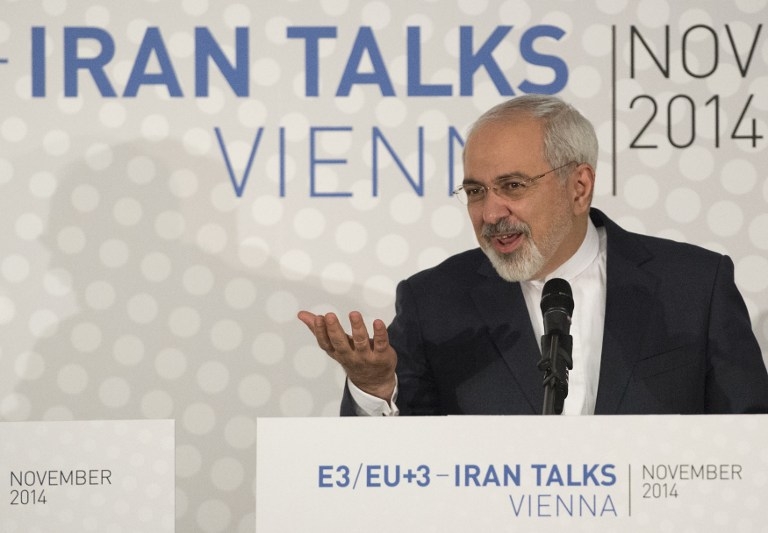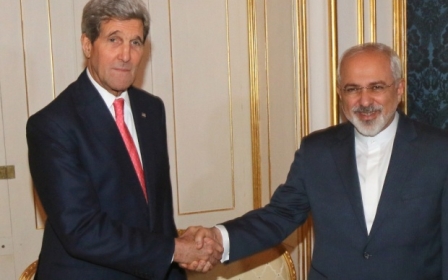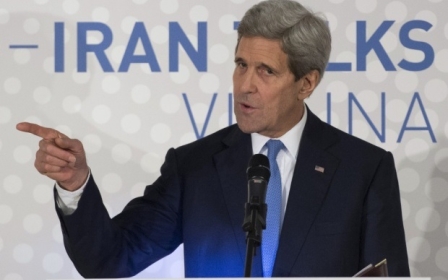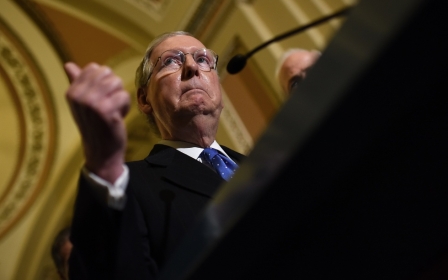Iranian FM cites persistent issues in nuclear talks

Multiple controversial issues remain following the latest talks between Iran and the major world powers over Tehran's controversial nuclear program, Iranian foreign minister told lawmakers on Saturday.
Javad Zarif's address at the parliament came after Iran and the world powers group called the P5+1 agreed on 24 November in Vienna to extend nuclear negotiations until the end of June 2015 after failing to meet the deadline for a permanent settlement.
The main issues causing continued dispute included when Iran can again become a part of the global economic community, removal of sanctions, number of centrifuges, the situation of heavy water reactors, and nuclear cooperation, Zarif said, according to a report by the country’s official news agency, IRNA.
A year ago in Geneva, world powers launched talks with Tehran on its nuclear program. As a result of those discussions, the parties reached an agreement on a Joint Plan of Action that stipulated a freeze on Iran's nuclear facilities for six months until the sides could reached a comprehensive agreement.
The talks were extended in July for an additional six months with a 24 November deadline, but the parties still could not reach a comprehensive agreement.
Analysts both in Iran and in the West have said that if the deadline was extended, Iran would likely walk away from the negotiations unless confidence-building measures were locked in ahead of the 24 November deadline.
“Putting off a deal yet again would, in fact, produce a perilous slide back towards crisis and confrontation,” Gary Sick who served on the National Security Council under Presidents Ford, Carter, and Reagan and was the principal White House aide for Iran during the Iranian Revolution and the hostage crisis told Politico.
But the Iranians have not walked away and, earlier this week, President Hassan Rouhani said a nuclear deal with the West would be done despite the missed deadline. His comments were met with mixed support with conservative newspapers saying nothing had been accomplished in Vienna and reformist outlets declaring progress had been made.
There are also concerns that the newly elected Republican-majority US Congress, set to come to power in January and dominated by Iran hawks and with many in its ranks influenced by the Israeli right, will scupper any deal which does not involve total Iranian capitulation.
“I really fear that due to the recent GOP win we are now going to have a situation where bad action will not be held up,” Jamal Abdi, policy director for the National Iranian American Council, told MEE. “Instead we’ll see bad measures pass and get vetoed by the president, which will create a lot of tension between the White House and Congress.”
Reaction to the negotiation extension this week seemed to confirm these worries. Sooner after US Secretary of State John Kerry implored US lawmakers not to "walk away" from the negotiations by slapping punitive sanctions on Iran, several lawmakers advocated just that.
"Now more than ever, it's critical that Congress enacts sanctions that give Iran's mullahs no choice but to dismantle their illicit nuclear program," Republican Senator Mark Kirk, who supports new sanctions, said in a statement on Monday. "Congress will not give Iran more time to build a nuclear bomb."
New MEE newsletter: Jerusalem Dispatch
Sign up to get the latest insights and analysis on Israel-Palestine, alongside Turkey Unpacked and other MEE newsletters
Middle East Eye delivers independent and unrivalled coverage and analysis of the Middle East, North Africa and beyond. To learn more about republishing this content and the associated fees, please fill out this form. More about MEE can be found here.




